Your search “Keep%20the%20Death%20Penalty%20Abolished%20fin%20the%20Philippfines%20%20%20%20%20%20%20%20%20%20/page/www.humanrights.asia/resources/hrreport/2011/AHRC-SPR-008-2011/at_download/file”

Article(s)
Abolition of the death penalty at the United Nations Human Rights Council 49th session
By Aurelie Placais, staff, on 3 May 2022
The 49th session of the UN Human Rights Council took place from 28 February to 1 April 2022. If you missed it, here’s what happened in relation to the abolition of the death penalty!
2022
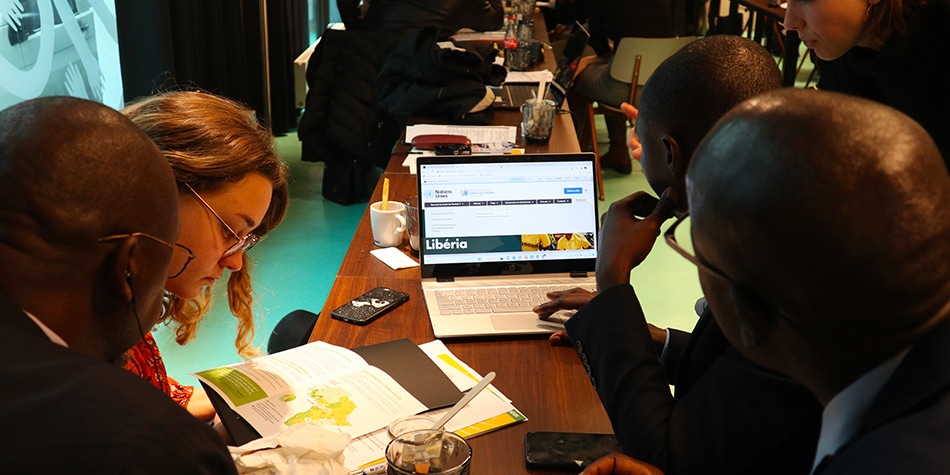
Article(s)
Advocacy Seminar Held in Berlin for French-Speaking Sub-Saharan Africa Members
By World Coalition Against the Death Penalty, on 26 January 2023
In the margins of the 8th World Congress Against the Death Penalty, member organizations of the World Coalition Against the Death Penalty (World Coalition) and FIACAT’s African ACATs (Féderation international des Action des Chrétiens pour l’abolition de la torture) met in Berlin, Germany for an advocacy seminar.
2023
Benin
Burkina Faso
Cameroon
Central African Republic
Chad
Congo
Côte d'Ivoire
Democratic Republic of the Congo
Guinea
Madagascar
Mali
Niger
Senegal
Togo

Article(s)
Papua New Guinea: one step away from full abolition of the death penalty
By Aurélie Plaçais, World Coalition Against the Death Penalty, on 21 January 2022
Papua New Guinea’s National Parliament voted to repeal the death penalty on 20 January2022. The bill has now to be signed into law and to be published in the official gazette.
2022
Moratorium
Papua New Guinea

Article(s)
Central African Republic Becomes 24th African State to Abolish the Death Penalty
By ACAT-RCA, ECPM, FIACAT, on 26 June 2022
The President of the Central African Republic promulgated the law abolishing the death penalty on June 27 2022, one month after the National Assembly passed the law. CAR is now the 24th abolitionist state in Africa and the 111th in the world.
2022
Central African Republic
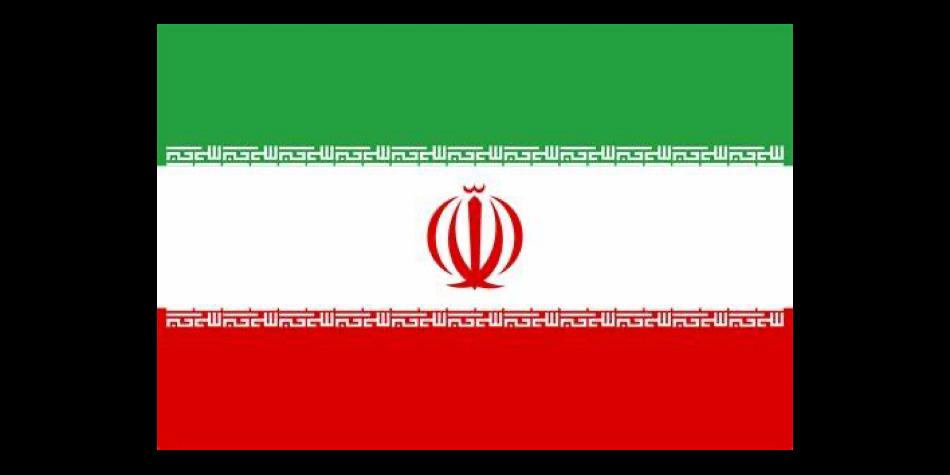
Article(s)
Statement of international solidarity with the families of people sentenced to death in Iran
By The World Coalition Against the Death Penalty, on 15 September 2022
The World Coalition Against the Death Penalty express its solidarity with the families and relatives of people who are sentenced to death in Iran and with the civil society organizations supporting them.
2022
Iran (Islamic Republic of)

Article(s)
Mid-terms: A first half of 2022 rich in abolitions
By the World Coalition Against the Death Penalty, on 13 September 2022
The first six months of 2022 have been rich for the abolitionist community with two new abolitionist countries and a new ratification of the Second Optional Protocol to the International Covenant on Civil and Political Rights aiming at the abolition of the death penalty. However, some countries continue to use the death penalty and there […]
2022
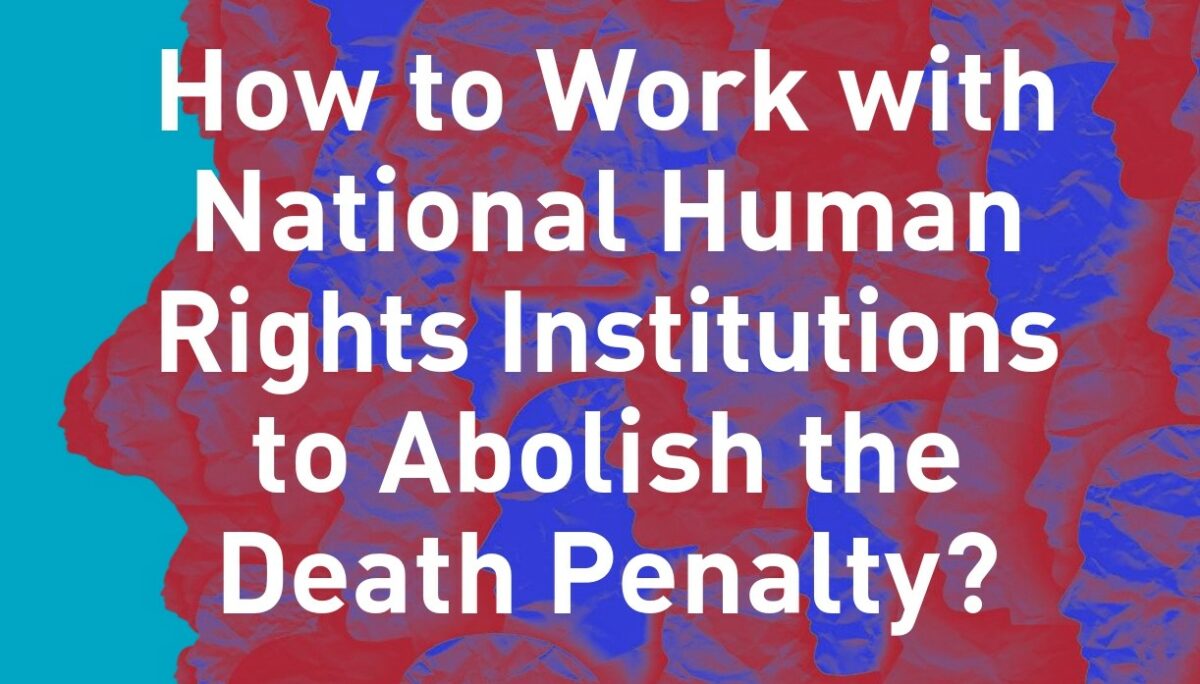
Article(s)
Publication of a New Guide on Working with National Human Rights Institutions to Abolish the Death Penalty
By Bronwyn Dudley, World Coalition Against the Death Penalty, on 17 November 2022
The World Coalition Against the Death Penalty has published a new how-to guide, in collaboration with Mr. Isidore Clément Capo-Chichi, President of the Beninese Commission on Human Rights. It is aimed for civil society organizations and illustrates how to collaborate with National Human Rights Institutions (NHRIs) to achieve the abolition of the death penalty. In […]
2022
Trend Towards Abolition

Article(s)
Abolition of the death penalty at the 50th session of the UN Human Rights Council
By Anissa Aguedal, on 19 August 2022
The United Nations Human Rights Council met for its 50th Regular Session from June 13 to July 8, 2022. If you missed it, here is what happened regarding the abolition of the death penalty!
2022

Article(s)
Joint Statement to condemn the public executions and the surge of executions in 2022 in Iran
By World Coalition Against the Death Penalty, on 11 August 2022
The World Coalition Against the Death Penalty strongly condemn the resumption of public executions in Iran and the surge in the executions in 2022, which goes against the international trends towards abolition of the death penalty.
2022
Iran (Islamic Republic of)

Article(s)
Reflecting on the links between the death penalty and gender-based violence
By World Coalition Against the Death Penalty, on 25 November 2022
On 25 November 2022, International Day for the Elimination of Violence against Women, the World Coalition Against the Death Penalty, through the testimony of representatives of abolitionist member and partner organizations, wishes to raise awareness of the links between the death penalty and violence against women and gender minorities and call out the unjust and […]
2022
Gender
Kenya
Sri Lanka
Uganda
Women
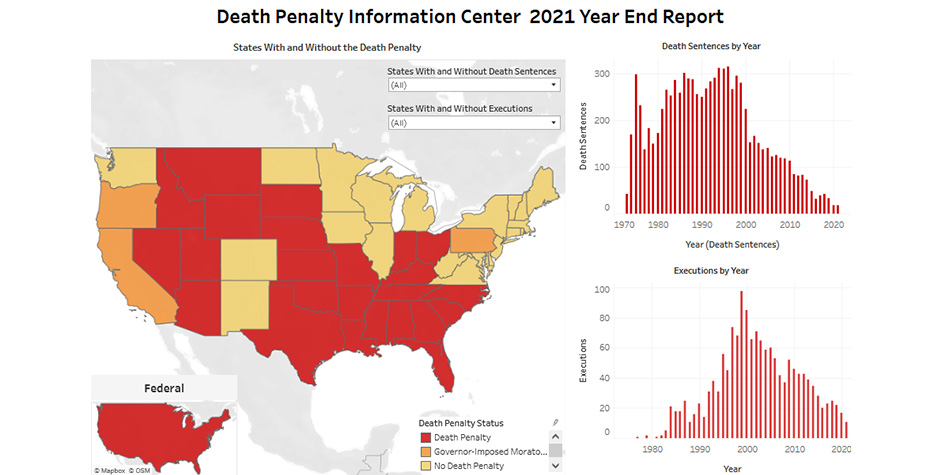
Article(s)
Executions and Death Sentences Near Record Lows in 2021 in the USA
By Death Penalty Information Center, on 13 January 2022
Virginia’s historic abolition of the death penalty highlighted a year in which public opinion polls, executions, and new death sentences all signaled continued erosion of support for capital punishment across the United States.
2022
Public Opinion
United States
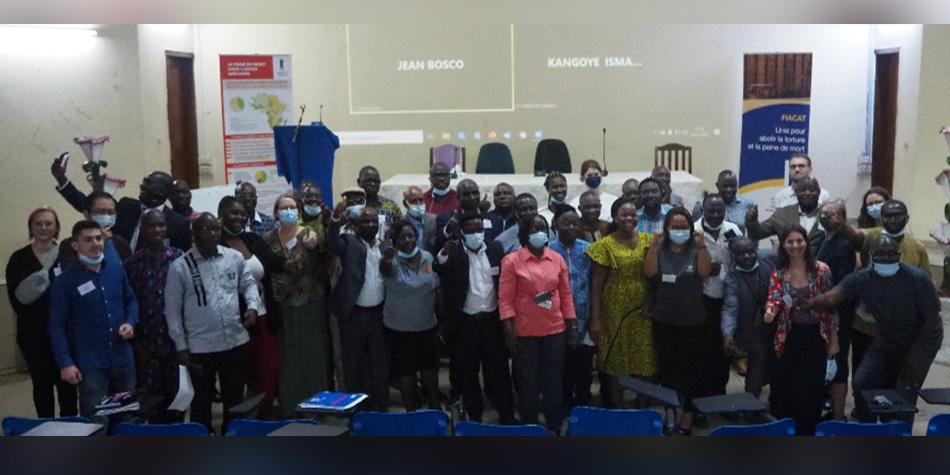
Article(s)
Capitalization workshop of the project for the abolition of the death penalty in sub-Saharan Africa
By Elise Garel, on 4 January 2022
Member organizations of the World Coalition Against the Death Penalty and African ACATs (Action des Chrétiens pour l’Abolition de la Torture) met in Abidjan (Côte d’Ivoire) for the capitalization workshop of Phase 2 of the project for the abolition of the death penalty in sub-Saharan Africa, organized on 29 and 30 November by the World […]
2022
Côte d'Ivoire
Moratorium
Public Opinion

Article(s)
246 People Removed from Death Rows in Zambia
on 29 January 2021
President Edgar Lungo announced, on 27 January 2021, that 246 death sentences had been commuted into life, a more than welcome decision that has brought the overall number of commutations to over 500 since 2015.
2021
Clemency
Zambia

Article(s)
Abolition of the death penalty at the United Nations Human Rights Council 52nd session
By World coalition against the death penalty, on 22 May 2023
The United Nations Human Rights Council met for its 52nd Regular Session from February 27 to April 4, 2023. If you missed it, here is what happened regarding the abolition of the death penalty!
2023
Trend Towards Abolition

Article(s)
Sierra Leone abolishes the Death Penalty
By World Coalition Against the Death Penalty , on 2 August 2021
On Friday 23rd July 2021, Sierra Leone’s Parliament unanimously abolished the death penalty by passing the Abolition of the Death Penalty Act.
2021
Public Opinion
Sierra Leone
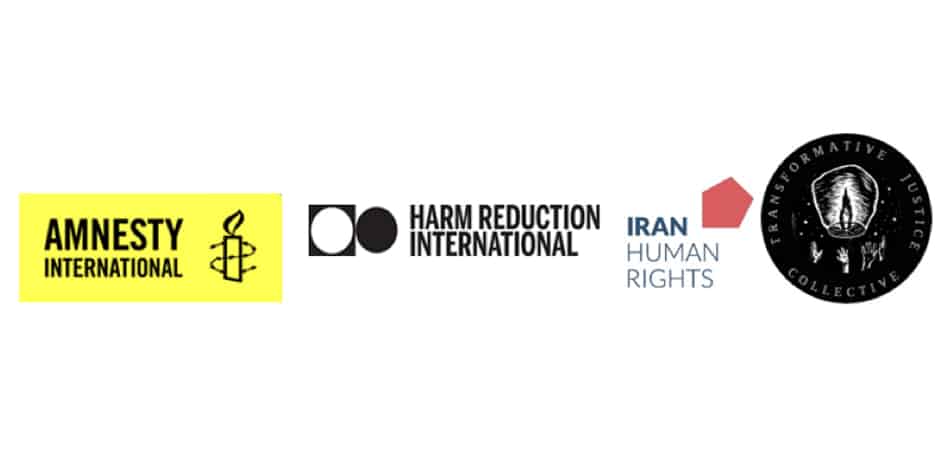
Article(s)
World Drugs Day: UNODC must act to stop the use of death penalty for drug-related offences and urge states to end executions
By Amnesty International, Harm Reduction International, Iran Human Rights, Transformative Justice Collective, on 27 June 2023
On 26 June, the UN Office on Drugs and Crime (UNODC) is marking World Drugs Day with the theme “People first: stop stigma and discrimination, strengthen prevention”, and launched another edition of the World Drug Report. Sadly, as has been the case over the years, UNODC has failed to raise concerns over the continued use […]
2023
Drug Offenses

Article(s)
Armenia ratifies international treaty for irreversible abolition of the death penalty
By Aurélie Plaçais, on 25 March 2021
Armenia ratified the Second Optional Protocol to the ICCPR on 18 March 2021.
2021
Armenia
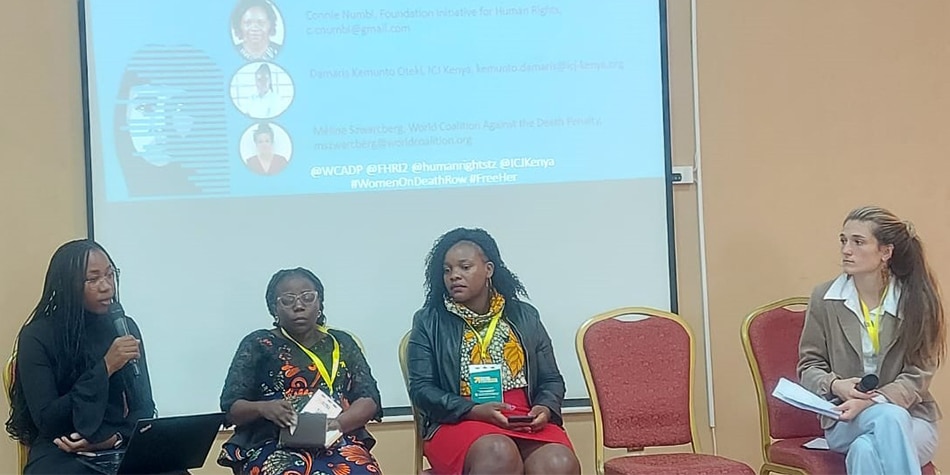
Article(s)
Advocating for the recognition of women sentenced to death in the fight for women’s rights
By World coalition against the death penalty, on 15 August 2023
From July 16 to 20, a World Coalition delegation comprising Connie Numbi of Foundation for Human Rights Initiative Uganda, Dr Anna Henga of Legal Human Right Center Tanzania, Damaris Kemunto of the Kenyan Section of the International Commission of Jurists (ICJ Kenya), and Méline Szwarcberg, Women and Gender Project Manager at the World Coalition, attended […]
2023
Gender
Women
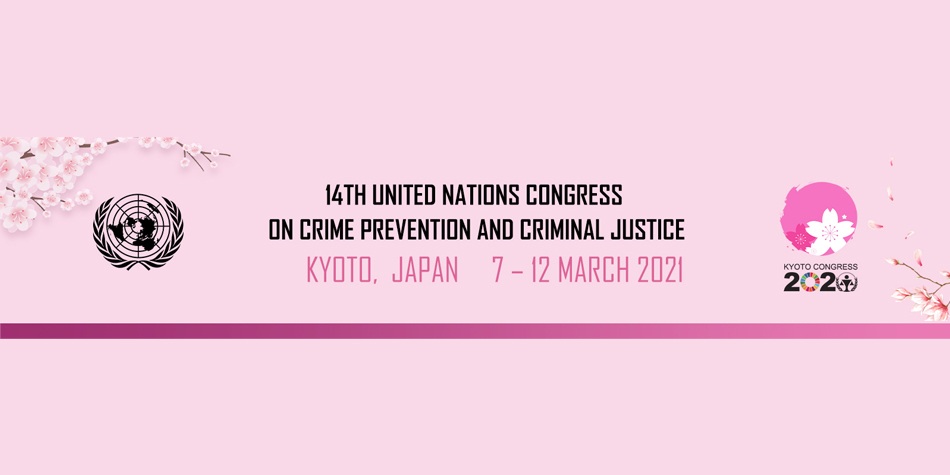
Article(s)
Recapping the UN Crime Congress in Kyoto
By Teppei Ono, CPR, on 15 March 2021
The United Nations Congress on Crime Prevention and Criminal Justice was held in Kyoto, Japan from 7 to 12 March 2021.
2021
Public Opinion

Article(s)
How Likely Is the Return of the Death Penalty in Israel?
By World Coalition against the Death Penalty, on 22 May 2023
Early 2023, the newly elected government of Israel announced an ensemble of judicial reforms; including a new bill that would introduce the death penalty for acts of terrorism. As of May 2023, the judicial reforms have been put on hold by the PM Netanyahu. This article takes a historical perspective to recontextualize the issue of […]
2023
Israel
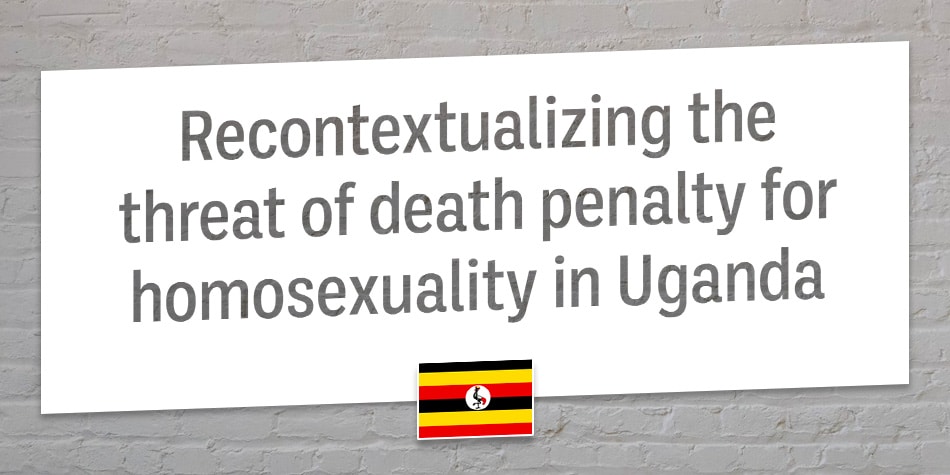
Article(s)
Recontextualizing the threat of death penalty for homosexuality in Uganda
By Méline Szwarcberg, on 2 May 2023
On Tuesday March 21, the Ugandan parliament passed a law that severely criminalizes people who have consensual same-sex relations. At the end of April, the law had still not been validated by the President Museveni. Among a range of harsh penalties, the law would allow the death penalty for the crime of « aggravated homosexuality […]
2023
Gender
Uganda
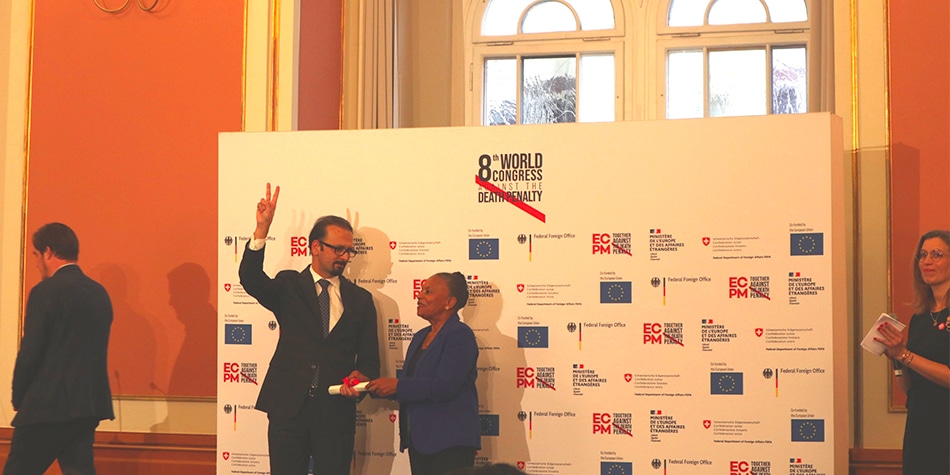
Article(s)
A Very Moving and Inspiring Closing Ceremony
By Dunia Schaffa, on 30 January 2023
The Closing Ceremony of the 8th World Congress celebrated people who play an immense role in the process of the abolition of the death penalty, with an awards ceremony and a tribute.
2023
Trend Towards Abolition

Article(s)
UN High Level Panel on the death penalty and limitation to the most serious crimes
By World coalition against the death penalty, on 14 March 2023
On February 28 2023, the United Nations (UN) Human Rights Council held its biennial high-level panel on the issue of the death penalty.
2023
Public Opinion
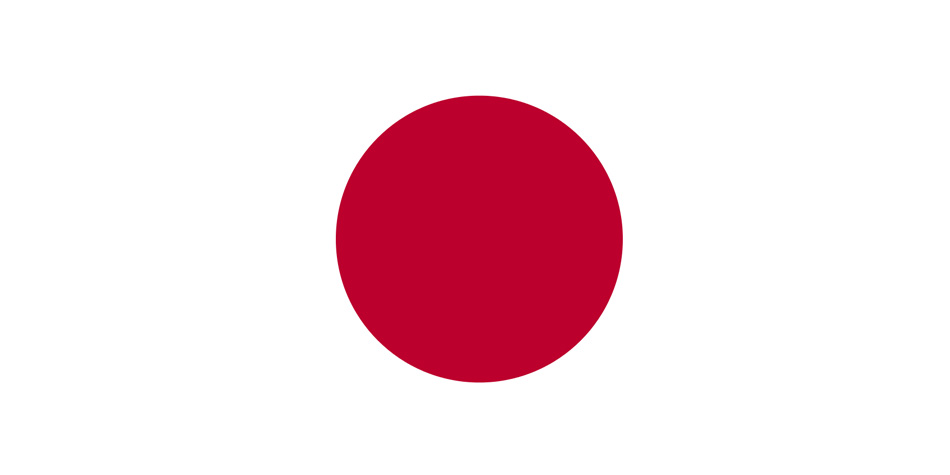
Article(s)
Protest Against Executions Ordered by Minister of Justice Yoshihisa Furukawa
By Center for Prisoner Rights and Japan Innocence and Death Penalty Information Center, on 23 December 2021
On 21 December 2021, Japan’s new governement executed three men after two years with no execution during which Japan hosted the Olympics and the United Nations Congress on Criminal Justice.
2021
Japan
Legal Representation
Moratorium
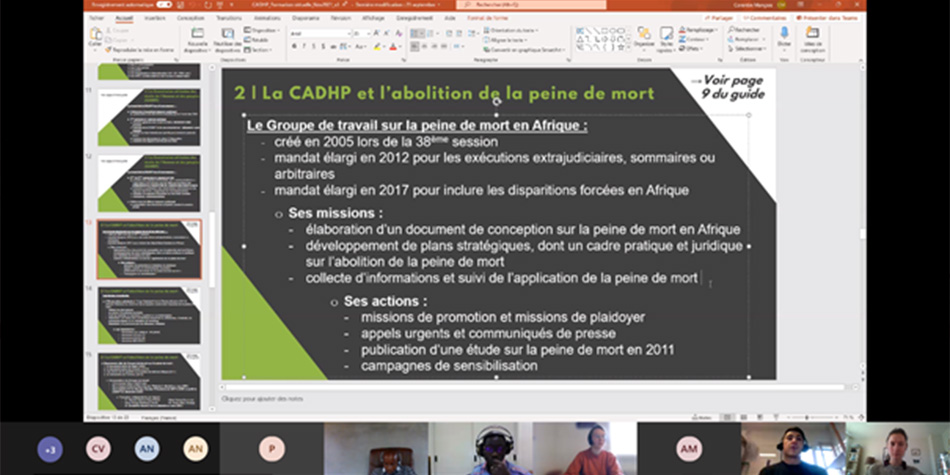
Article(s)
NGO Forum and 69th Ordinary Session of the African Commission of Human and Peoples’ Rights
By Bronwyn Dudley and Corentin Mançois, on 17 December 2021
The ACHPR (the African Commission on Human and Peoples’ Rights) met again virtually for its 69th Ordinary Session from 15 November – 5 December 2021.
2021
Terrorism
Women

Article(s)
Death Penalty Information Center’s Annual Summary
By Dunia Schaffa, on 27 February 2023
According to the Death Penalty Information Center (DPIC) annual review, 2022 has been the eighth consecutive year with less than 30 people executed and less than 50 people sentenced to death during the year in the United States of America.
2023
United States
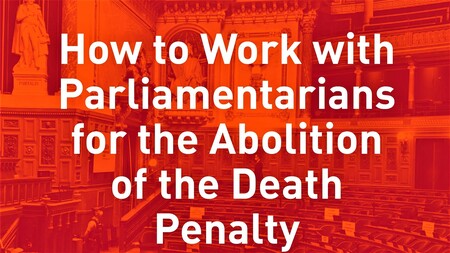
Article(s)
Publication of a New Guide on Working with Parliamentarians to Abolish the Death Penalty
By World Coalition Against the Death Penalty, on 10 October 2021
The World Coalition Against the Death Penalty, in partnership with Parliamentarians for Global Action (PGA), has published a new how-to guide for civil society organizations (CSOs) on how to collaborate with parliamentarians to abolish the death penalty.
2021
Women

Article(s)
Moratorium Stays in Place in Sri Lanka and Anti-Death Penalty Petitioners Secure an Official Record in Court Proceedings to Protect Future Rights
By World Coalition Against the Death Penalty, on 28 March 2023
Petitioners challenging the potential resumption of executions in Sri Lanka experienced received reassuring news on 23 February 2023 when the Attorney General of Sri Lanka reported to the Supreme Court that the incumbent President Ranil Wickremesinghe has agreed to not implement executions during his tenure.
2023
Sri Lanka
Trend Towards Abolition
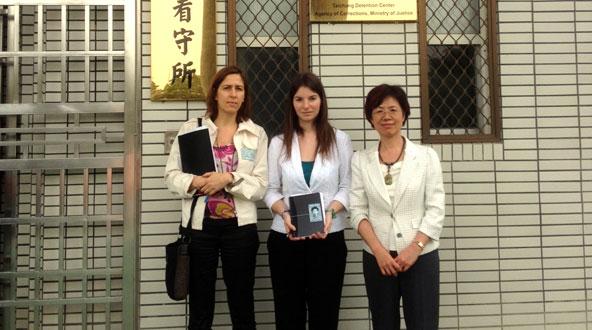
Article(s)
Taiwan executions spark outrage
By Thomas Hubert, on 19 April 2013
The authorities of Taiwan have executed six prisoners, days after President Ma met World Coalition representatives and promised to “reduce the use” of the death penalty.
2013
Taiwan
Taiwan
Article(s)
Top Chinese abolitionist receives threats
on 14 March 2008
The World Coalition Against the Death Penalty (WCADP) is concerned about the security of human rights lawyer, academic and anti-death penalty activist Teng Biao.
2008
China
Fair Trial
Article(s)
China acknowledges death row organ trafficking
on 29 August 2009
The World Coalition and its members have been criticizing illegal organ transplants after executions. Beijing promises to tackle the problem.
2009
China
Cruel, Inhuman and Degrading Treatment and Punishment
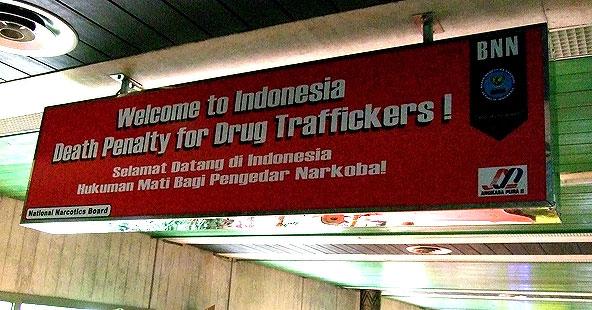
Article(s)
Indonesian executions on the rise as election looms
By Emile Carreau, on 10 December 2013
Executions have multiplied in Indonesia throughout 2013. World Coalition local member organization KontraS sees political motivations behind the end of a four-year moratorium.
2013
Indonesia
Indonesia
Article(s)
Thai seminars explore religious perspectives on the death penalty
on 4 August 2008
Thai human rights activists led by the Union for Civil Liberty (UCL) organised a series of seminars with religious leaders to raise their awareness and discuss their perspectives on abolition.
2008
Murder Victims' Families
Public Opinion
Thailand
Article(s)
Japanese lawyer indignant after her client is executed without notice
on 23 June 2008
On June 17, Tsutomu Miyazaki, Shinji Mutsuda and Yoshio Yamazaki were executed in Japan. Lawyer Maiko Tagusari, who defended one of the three men, denounces the rising number of executions in her country.
2008
China
Japan
Legal Representation
Taiwan

Article(s)
3+4: Death Penalty Cases Now Jury Cases
By Nicolas Chua, on 23 November 2018
On 24 April 2018, ‘The People’s Jury Law’ established a new judicial framework to deal with serious criminal cases, including death penalty cases. As of its enactment, death penalty cases in China are now jury cases.
2018
China
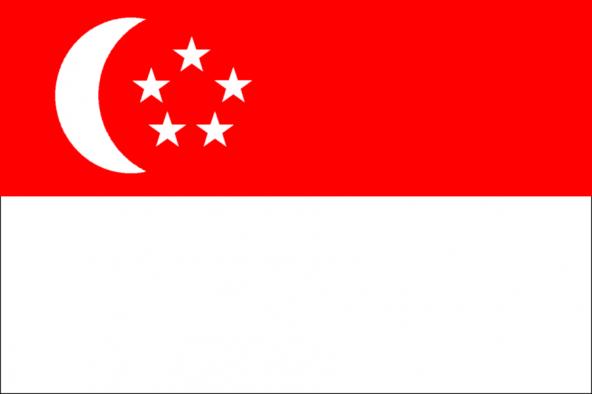
Article(s)
Singapore Executes People Sentenced to Death for Non-violent Crimes and Threatens their Lawyers
By Dinda Royhan, on 19 September 2019
On 13 July 2019, Think Centre reported that 32 executions have occurred in Singapore since it ended its moratorium on the death penalty in 2014. At the same time, lawyers defending capital cases have reported receiving threats from the government. As of the date of writing, Singapore is among 24 world states that have not ratified the ICCPR and its protocols.
2019
Drug Offenses
Legal Representation
Singapore
Article(s)
Executions and secrecy in Japan
on 15 April 2008
The World Coalition condemns the acceleration of executions in Japan andt the continued secrecy surrounding them.
2008
Cruel, Inhuman and Degrading Treatment and Punishment
Japan
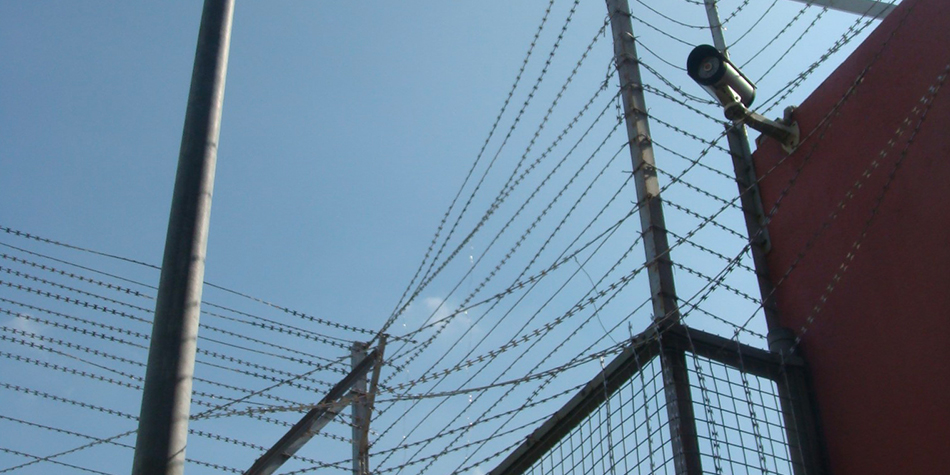
Article(s)
Does one year of “double zero” mean the death penalty has been repealed? How close is Taiwan to abolishing capital punishment?
By Lin Hsin-yi, Executive Director of the Taiwan Alliance to End the Death Penalty, on 28 April 2022
After the end of the last workday of 2021, it became clear that no one would be sentenced to death or executed that year – the first time ever that Taiwan has experienced “double-zero.”
2022
Taiwan
Article(s)
Book: a victory on the road to abolition
on 19 January 2010
The Taiwan Alliance to End the Death Penalty has just published Staving off the Executioner, a book describing the Taiwanese abolitionist movement’s strategies, challenges and successes.
2010
Fair Trial
Legal Representation
Taiwan
Taiwan
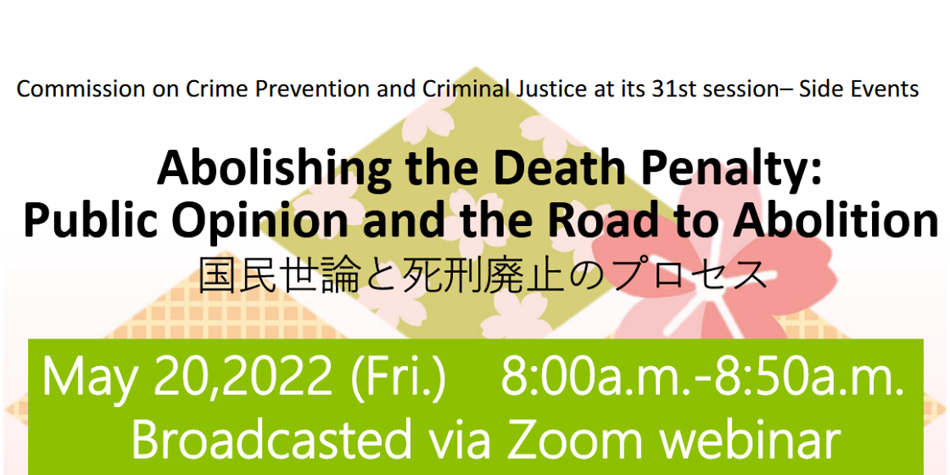
Article(s)
Public opinion supportive of the abolition
By Sarah Saint-Sorny, on 10 June 2022
The 31st Session of the Commission on Crime Prevention and Criminal Justice of the ODC took place in Vienna from the 16th to the 20th of May 2022. At this occasion, the Japan Federation of Bar Associations organized a side-event: “Abolishing the Death Penalty: Public Opinion and the Road to Abolition”, which was held online […]
2022
France
Japan
Public Opinion
United States

Article(s)
Pakistan moratorium renewal welcomed
By Human Rights Commission of Pakistan, on 8 October 2013
The Human Rights Commission of Pakistan (HRCP), a World Coalition member organisation, has welcomed the federal government’s announcement on continuing the moratorium on capital punishment and has called for a thorough review of the death penalty regime in the country.
2013
Moratorium
Pakistan
Pakistan
Article(s)
Teng Biao: Olympics an opportunity to put pressure on the Chinese authorities”
on 13 February 2008
Teng Biao is one of the rare activists who call for the immediate abolition of the death penalty from within China. In the past weeks, the police confiscated his passport and he received threats.
2008
China
Innocence
Public Opinion
Article(s)
Nie Shubin: a victim of the arbitrary in China
on 21 January 2008
In the lead up to the Beijing Olympics, the French coalition Collectif Chine JO 2008 highlights cases of human rights abuse in China on a weekly basis. This week, they focus on Nie Shubin, who was executed by mistake in 1995.
2008
China
Cruel, Inhuman and Degrading Treatment and Punishment
Women
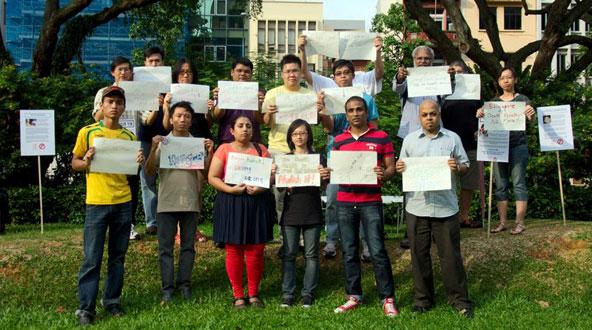
Article(s)
Migrant workers facing capital punishment show need for alternative sentences
By Think Centre, on 26 April 2012
Four Singapore-based organisations denounce the high risk of miscarriage of justice in recent death sentences handed down on poor immigrants and calls for the abolition of the death penalty in the city-state.
2012
Cruel, Inhuman and Degrading Treatment and Punishment
Moratorium
Singapore
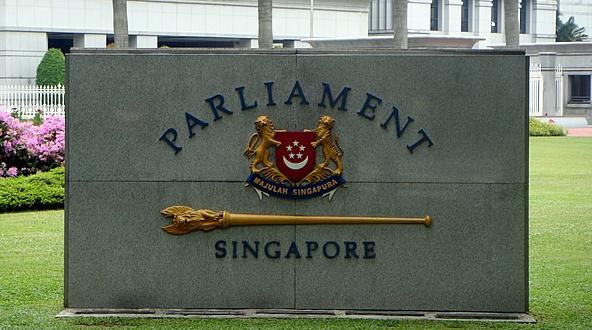
Article(s)
Singaporean and Malaysian activists welcome changes in their country
By World Coalition Against the Death Penalty, on 16 July 2012
In Singapore and Malaysia, governments are considering removing mandatory death penalty in some drug and murder cases. A move welcomed by activists on the ground, though they consider it “only a small step in the right direction”.
2012
Drug Offenses
Malaysia
Singapore
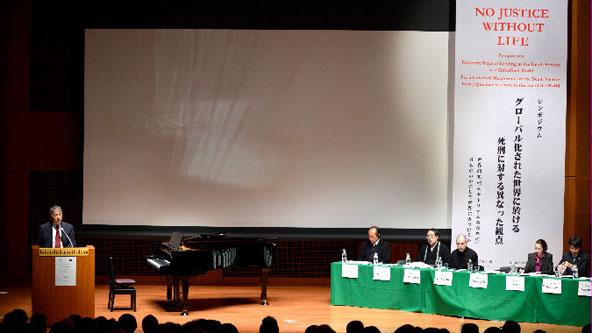
Article(s)
Japan’s death penalty under scrutiny
By The Advocates for Human Rights, on 5 November 2012
After a high-level conference on the abolition of the death penalty in Tokyo on October 29th, the United Nations’ Human Rights Council examined Japan’s record on October 31st as part of the Universal Periodic Review, a worldwide mechanism to monitor the enforcement of human rights. Major Japanese infringements concern the use of the death penalty.
2012
Clemency
Cruel, Inhuman and Degrading Treatment and Punishment
Death Row Conditions
Fair Trial
Intellectual Disability
Japan
Legal Representation
Mental Illness
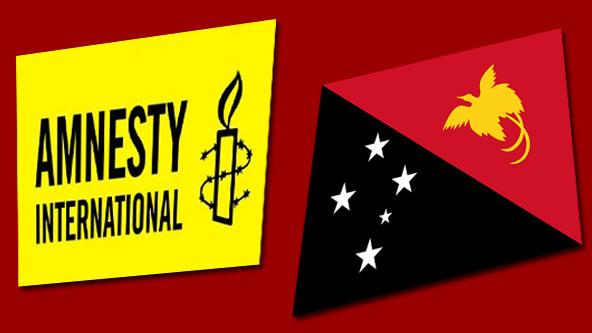
Article(s)
Death penalty proposals put lives at risk
on 23 May 2013
At least ten people under sentence of death will be at risk of execution if legal amendments to facilitate the resumption of executions are passed in Papua New Guinea.
2013
Papua New Guinea
Women
Article(s)
Teaching abolition in Taiwan
on 9 December 2009
Tsou Tzung Han is a Taiwanese teacher who actively took part in educational activities organised around World Day Against the Death Penalty. He writes about his experience with his students.
2009
Public Opinion
Taiwan
Taiwan
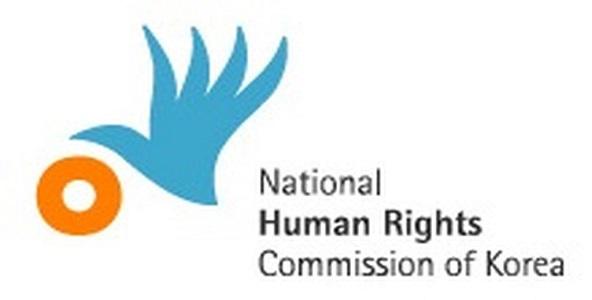
Article(s)
After more than 20 years without executions, a trend toward an official moratorium?
By Clémentine Etienne, on 27 June 2018
On 18 June 2018, the Korean National Human Rights Commission (NHRC) called on the South Korean President to declare an official moratorium on the death penalty to mark the 70th anniversary of the Universal Declaration of Human Rights on December 10.
2018
Republic of Korea
Article(s)
World Coalition member in Bahrain fights for the lives of protestors
on 25 May 2011
Nabeel Rajab, President of the Bahrain Center for Human Rights, keeps up the fight for two protestors condemned to death despite attempts at intimidation.
2011
Bahrain
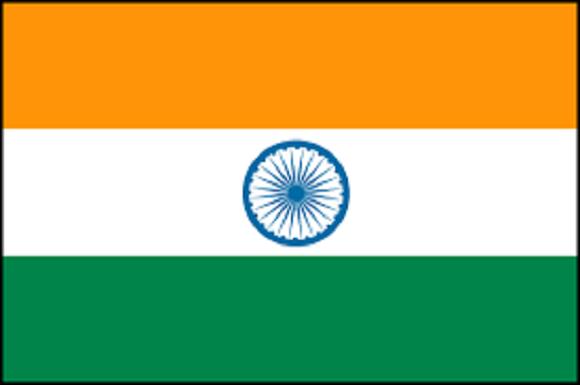
Article(s)
Release of the Death Penalty India Report
By Marion Gauer, on 20 May 2016
A report describing the socio-economic profiles of death row inmates in India was recently released by the National Law University’s Death Penalty Research Project (based in New Delhi).
2016
India

Article(s)
Abolition of the death penalty in Nauru
By Marion Gauer, on 3 June 2016
Nauru recently ended its de facto moratorium by abolishing the death penalty in law.
2016
Nauru
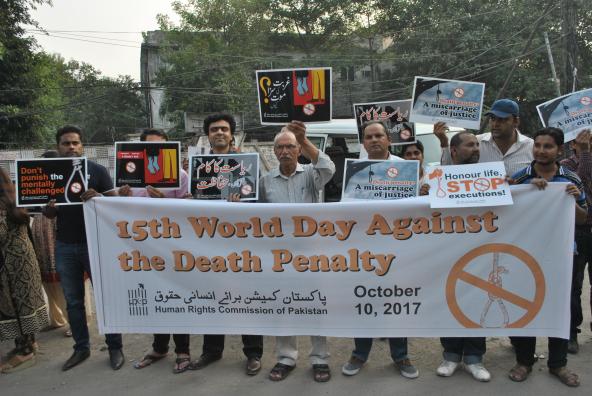
Article(s)
Abolitionists fight against the abusive use of the death penalty
By Thalia Gerzso, on 28 November 2017
In October 2017, Pakistan has agreed to initiate efforts to narrow down the scope of the death penalty. This first step is the result of a strong mobilization from Pakistani and international organizations, in particular during World Day.
2017
Pakistan
Public Opinion
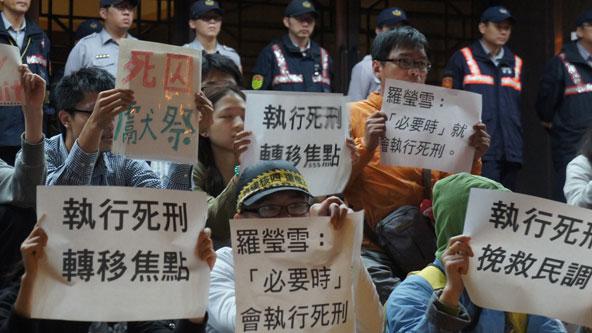
Article(s)
More surprise executions in Taiwan
By Emile Carreau, on 30 April 2014
With the recent execution of five prisoners in Taiwan, World Coalition member organisation, Taiwan Alliance to End the Death Penalty (TAEDP), is feeling a sense of déjà vu.
2014
Taiwan
Taiwan
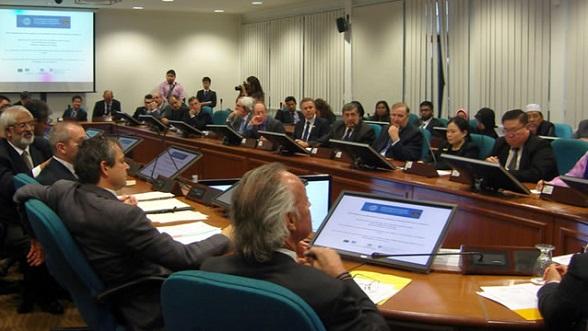
Article(s)
Parliamentarians lead Malaysia Towards Abolition of the Mandatory Death Penalty
By Elisa Bellotti, on 11 December 2015
On 17 November 2015, Parliamentarians for Global Action organized a roundtable and consultations on the abolition of the mandatory death penalty in Malaysia. Parliamentarians play a major role in the country’s journey towards abolition.
2015
Malaysia

Article(s)
Singapore: the government threatens abolitionists and human rights defenders.
By Thalia Gerzso, on 24 January 2018
Despite a death penalty reform in 2013, Singapore continues to impose the mandatory death penalty in a significant number of cases while repressing abolitionists and human rights defenders.
2018
Singapore

Article(s)
ADPAN welcomes Mongolia’s decision abolish death penalty in law
By ADPAN, on 18 December 2015
Mongolia abolished the death penalty for all crimes in law on 3 December 2015 by adopting a new Criminal Code without any reference to capital punishment. Mongolia had already taken a strong commitment in 2012 by ratifying the Second Optional Protocol to the ICCPR, and it was one of the World Coalition’s target countries for the follow-up of the ratification campaign. The new Criminal Code will come into effect in September 2016
2015
Document(s)
Defending Women and Transgender Persons Facing Extreme Sentences: A Practical Guide
on 14 January 2022
2022
Legal Representation
Legal Representation
Women
frMore details See the document
Written by a team including experts in the fields of capital defense, gender rights, gender-sensitive mitigation and the rights of transgender persons, the guide includes sections on gender-based violence, women’s mental health, prison conditions, discrimination in the legal system, working with the media, and how to build a gender-sensitive team. It also includes a step-by-step gender-sensitive interview protocol that builds on resources developed by the anti-violence community and is tailored to the needs of defense teams.
- Document type Legal Representation
- Themes list Legal Representation / Women
- Available languages Défendre les femmes et les personnes transgenres confrontées à des peines extrêmes
Document(s)
Cameroon – Committee to Eliminate Racial Discrimination – Death Penalty – March 2020
By RACOPEM, ACAT Cameroun, on 21 March 2020
2020
NGO report
World Coalition
Cameroon
More details Download [ pdf - 1898 Ko ]
This report addresses Cameroon’s compliance with human rights obligations under the Convention on the Elimination of All Forms of Racial Discrimination, particularly with respect to the imposition of the death penalty against Anglophone Cameroonians.
By way of background, the Anglophone crisis in Cameroon began in 2016 as peaceful protests by lawyers and teachers demanding linguistic reforms but rapidly escalated into a war of secession that has killed thousands of people and displaced over one million.
The Cameroonian Criminal Code adopted in 2016 allows for the death penalty, including for vaguely defined terrorism-related offences. In this regard, the Anti-Terrorism Law of 2014 has been used to prosecute Anglophone human rights activists before military courts for acts of terrorism, secession, rebellion, and spreading false news, with the death penalty as a potential sentence in such cases.
While Cameroon ratified the International Covenant on Civil and Political Rights (ICCPR) in 1984, it has yet to ratify its Second Optional Protocol aiming at the abolition of the death penalty (ICCPR-OP2). Although no execution has taken place in Cameroon since 1997, civil society organizations estimate that 220 people currently are under sentence of death in Cameroon.
As discussed below, Cameroon fails to uphold its obligations under the International Convention on the Elimination of All Forms of Racial Discrimination because its domestic law and institutional and political framework do not sufficiently protect Anglophones facing the death penalty.
- Document type NGO report / World Coalition
- Countries list Cameroon
Document(s)
Death Penalty Politics: The Fragility of Abolition in Asia and the Pacific
By Mark Finnane, Mai Sato and Susan Trevaskes, on 1 September 2022
2022
Academic report
More details See the document
Despite a steady increase worldwide in the number of states that have abolished the death penalty, capital punishment remains a troubling presence in the international order. The world’s leading powers in terms of economics and population include the retentionist states of China, India, Japan and the United States of America (USA). It seems there is no linear path to abolition, and its achievement is indeterminate. Yet, in international human rights law, death penalty abolition is a powerful norm embraced by half the countries across the world. While the majority of death penalty research has emanated from and focuses on the USA, well over 90 per cent of global executions occur in Asia, which lags behind the global trend towards abolishing the death penalty. Our symposium and this collection seek to bring perspectives from a variety of disciplines and methods—historical, legal, sociological, comparative— to bear on the questions of retention and abolition in a variety of jurisdictions and time periods.
This article was first published in Crime Justice Journal: https://www.crimejusticejournal.com/issue/view/119
- Document type Academic report
Document(s)
Facts and Figures 2011
By World Coalition against the death penalty , on 10 October 2011
2011
Campaigning
Trend Towards Abolition
frMore details Download [ pdf - 100 Ko ]
Facts and Figures 2011
- Document type Campaigning
- Themes list Trend Towards Abolition
- Available languages Faits et chiffres 2011
Document(s)
The Death Penalty For Drug Offences: Global Overview 2023
By Harm Reduction International, on 28 March 2024
2024
NGO report
Drug Offenses
More details See the document
Published in 2023.
At the end of 2023, 34 countries retained the death for drug offences. In July 2023 Pakistan took the landmark decision to remove the death penalty from the list of punishments that can be imposed for certain violations of its Control of Narcotics Substances Act. This year also saw notable progress in Malaysia, which abolished the mandatory death penalty for all offences, including drug-related ones. This reform may impact the lives of over 700 people on death row for drug offences and bring the country one step closer to total abolition of capital punishment. In stark contrast to these positive developments is the record-high number of drug-related executions in 2023 at least 467. Of those executed, at least 59 people belonged to ethnic minority groups (in Iran and in Singapore), 13 individuals were foreign nationals, and six were women. These figures confirm that these groups are uniquely vulnerable to capital punishment as a tool of drug control. Despite not accounting for the dozens, if not hundreds, of executions believed to have taken place in China, Vietnam, and North Korea, the 467 executions that took place in 2023 represent a 44% increase from 2022.
- Document type NGO report
- Themes list Drug Offenses
Document(s)
Uganda – Committee on the Elimination of Discrimination Against Women – Death Penalty – January 2022
on 12 January 2022
2022
NGO report
World Coalition
Uganda
Women
More details Download [ pdf - 243 Ko ]
This report addresses Uganda’s compliance with its obligations under the Convention on the Elimination of All Forms of Discrimination Against Women with respect to the death penalty. The report examines and discusses Ugandan death penalty laws and cases where women are sentenced to death row in Uganda, primarily for murder.
This report recommends that Uganda adopt a number of key recommendations to better align its death penalty practices with Uganda’s obligations to women under the Convention. These steps, among other things, include: (1) abolishing the death penalty and in the interim, limiting the death penalty to only the most serious crimes of intentional killing of another human; (2) ensuring proper gender-sensitive training in the judicial system and protecting women in conflict with the law when gender-based violence is involved; (3) developing and implementing programs to prevent gender-based violence and discrimination; and (4) ensuring fair access to counsel to women sentenced to death or at risk of being sentenced to death.
- Document type NGO report / World Coalition
- Countries list Uganda
- Themes list Women
Document(s)
Doomed to Repeat: The Legacy of Race in Tennessee’s Contemporary Death Penalty
By Death Penalty Information Center, on 16 June 2023
2023
NGO report
Fair Trial
United States
More details See the document
This report explores the current issues with capital punishment in Tennessee through a historical lens, tracing the origins of the use of the death penalty from lynchings and other forms of racial violence directed at Black Tennesseans. The stories of individuals and communities that have interacted with different facets of Tennessee’s justice system throughout history suggest that, in many ways, even though centuries have passed, the experiences of discrimination toward Tennessee’s communities of color continue. A meaningful understanding of the state’s history and its legacy of violence and racism is essential to avoid repeating the mistakes of the past.
- Document type NGO report
- Countries list United States
- Themes list Fair Trial
Document(s)
Killing in the Name of God: State-sanctioned Violations of Religious Freedom
By Eleos Justice, Monash University, on 10 November 2021
2021
Academic report
Brunei Darussalam
Iran (Islamic Republic of)
Maldives
Mauritania
Nigeria
Qatar
Saudi Arabia
Somalia
United Arab Emirates
Yemen
More details See the document
As of 2020, blasphemy was formally criminalised in some 84 countries. As many as 21 countries criminalised apostasy as of 2019. The legal penalties for such offences range from fines to imprisonment to corporal punishment—and in at least 12 countries, the death penalty.
This report examines the extent to which States commit, or are complicit in, killings that violate religious freedom. Focussing on the 12 States in which offences against religion are lawfully punishable by death, we examine four different types of State-sanctioned killings on the basis of religious offence (apostasy, blasphemy, or alike) or affiliation (most commonly, membership of a religious minority): judicial executions, extrajudicial killings, killings by civilians, and killings by extremist groups. We explore the relationship between the retention of the death penalty for religious offences and other forms of State-sanctioned killings motivated by alleged religious offending or by religious identity.
- Document type Academic report
- Countries list Brunei Darussalam / Iran (Islamic Republic of) / Maldives / Mauritania / Nigeria / Qatar / Saudi Arabia / Somalia / United Arab Emirates / Yemen
Document(s)
2020 Activity Report
By World Coalition Against the Death Penalty, on 9 September 2021
2021
World Coalition
frMore details Download [ pdf - 496 Ko ]
Activity Report of the World Coalition Against the Death Penalty for 2020, as adopted by its General Assembly on 18 June 2021
- Document type World Coalition
- Available languages Rapport d'Activité 2020
Document(s)
Explaining the Invidious: How Race Influences Capital Punishment in America
By Sheri Lynn Johnson, James and Mark Flanagan, Cornell Law School, on 1 September 2022
2022
Academic report
United States
More details See the document
This article primarily focuses on how racial bias creates nearly ubiquitous racial disparities in the imposition of the death penalty; it does so both to amass further reasons McCleskey was wrongly decided, and to point the way forward. Part I provides the necessary foundation by summarizing the history of race and the death penalty in the United States, with a focus on the Supreme Court’s treatment of racial discrimination claims in capital sentencing. Part II, the heart of this Article, examines the multiple psychological mechanisms that create racially biased decision making in capital cases. Understanding those mechanisms further undercuts the Supreme Court’s reasoning in McCleskey and argues for overturning the holding. However, recognizing the reluctance with which today’s Court would view overturning McCleskey, Part III considers whether and how alternative, case-specific uses of the data described in Part II might ameliorate the influence of racial bias in capital sentencing.
- Document type Academic report
- Countries list United States
Document(s)
Ethiopia – Committee Against Torture (LOI) – Death Penalty – June 2022
on 21 July 2022
2022
NGO report
World Coalition
Ethiopia
More details Download [ pdf - 1447 Ko ]
This report addresses Ethiopia’s compliance with its human rights obligations with regard to the death penalty. Although there are currently at least 147 people on death row in Ethiopia, the country has not carried out any executions during the reporting period and has also pardoned and released 41 additional death row inmates since that time.[1] The Federal Supreme Court of Ethiopia has also issued sentencing guidelines that purport to further reduce the likelihood of persons being sentenced to death as a punishment for their crimes.[2] Nonetheless, Ethiopia has not taken concrete steps to reduce the number of crimes eligible for the death penalty, and the use of torture and other due process violations related to judicial proceedings render all death sentences arbitrary.
- Document type NGO report / World Coalition
- Countries list Ethiopia

Member(s)
The Advocates for Human Rights
on 30 April 2020
The mission of The Advocates for Human Rights is to implement international human rights standards in order to promote civil society and reinforce the rule of law. By involving volunteers in research, education, and advocacy, The Advocates build broad constituencies in the United States and select global communities. In 1991, The Advocates adopted a formal […]
2020
United States

Member(s)
Ensemble contre la peine de mort (ECPM)
on 30 April 2020
Since 2000, Together against the Death Penalty (Ensemble contre la peine de mort – ECPM) acts to fight against the death penalty around the world. The association promotes the universal abolition through the creation and dissemination of publications and teaching tools, as part of public campaigns and lobbies governments at both national and international levels. […]
France
Article(s)
3rd World Congress Report: a 400-page strategy
on 22 April 2008
The report of the Paris World Congress, organised by Together Against the Death Penalty with the help of the World Coalition in Paris in 2007, is just out. Its aim is to serve as a “guide to abolitionist strategy”.
2008
Document(s)
Death Penalty Lessons from Asia
By David T. Johnson / Franklin E. Zimring / Asia-Pacific Journal, on 1 January 2009
2009
Article
China
More details See the document
Part one of this article summarizes death penalty policy and practice in the region that accounts for 60 percent of the world’s population and more than 90 percent of the world’s executions. The lessons from Asia are then organized into three parts. Part two describes features of death penalty policy in Asia that are consistent with the experiences recorded in Europe and with the theories developed to explain Western changes. Part three identifies some of the most significant diversities within the Asian region – in rates of execution, trends over time, and patterns of change – that contrast with the recent history of capital punishment in non-Asian locations and therefore challenge conventional interpretations of death penalty policy and change. Part four discusses three ways that the politics of capital punishment in Asia are distinctive: the limited role of international standards and transnational influences in most Asian jurisdictions; the presence of single-party domination in several Asian political systems; and the persistence of communist versions of capital punishment in the Asia region.
- Document type Article
- Countries list China
- Themes list Death Penalty,

Member(s)
Association Justice et Miséricorde (AJEM)
on 30 April 2020
The Association Justice and Mercy (AJEM) is a Lebanese nonprofit, nonpolitical and nonsectarian nongovernmental organization (NGO) created in 1996 at the initiative of a group of social workers. AJEM deals mainly with the right of prisoners in Lebanon, and more generally with human rights, the fight against torture and other cruel, inhuman and degrading treatment, […]
2020
Lebanon
Document(s)
Initiatives World Day 2006
By World Coalition against the death penalty , on 10 October 2006
2006
Campaigning
Trend Towards Abolition
frMore details See the document
Initiatives World Day 2006
- Document type Campaigning
- Themes list Trend Towards Abolition
- Available languages Initiatives journée mondiale 2006
Document(s)
Compendium of case law of the European Court of Human Rights on the death penalty and extrajudicial execution
By Jeremy McBride, Council of Europe, on 24 April 2022
2022
International law - Regional body
Legal Representation
More details See the document
The compendium’s aim is to assist national judges, prosecutors and lawyers from the 46 member states of the Council of Europe to deal with extradition or deportation cases when there is a risk of the death penalty being imposed in third countries or of extrajudicial execution. It also aims at enabling legal professionals from countries where the death penalty still exists to develop arguments based upon the reasoning of the case law of the European Court of Human Rights. It contains relevant extracts from the Court’s case law, structured in a user-friendly way.
- Document type International law - Regional body
- Themes list Legal Representation
Document(s)
TESTIMONIES- 21 st World Day Against the Death Penalty
on 10 July 2023
2023
Campaigning
World Coalition
frMore details Download [ pdf - 759 Ko ]
This document has been compiled by the Secretariat of the World Coalition Against the Death Penalty with substantial aid from member organizations, including Abdorrahman Boroumand Center, Amnesty International, Cornell Center on the Death Penalty Worldwide, Free Mumia ! French Support Group (Collectif français “Libérons Mumia !”), German Coalition Against the Death Penalty, Justice Project Pakistan, […]
- Document type Campaigning / World Coalition
- Available languages TEMOIGNAGES - 21ème Journée mondiale contre la peine de mort
Document(s)
The Maldives – Committee on the Elimination of Discrimination Against Women – Death Penalty – September 2021
on 20 September 2021
2021
NGO report
World Coalition
Maldives
More details Download [ pdf - 263 Ko ]
The Maldives’ continued use of the death penalty undermines government efforts and commitments to end gender-based discrimination. The death penalty invites discriminatory sentences against women for adultery and other crimes of sexual immorality, as well as for acting as accomplices to murder committed by male counterparts. Capital punishment promotes negative stereotypes about women and reinforces discriminatory gender roles. The possibility of facing the death penalty also discourages human rights defenders from civic engagement on a number of human rights issues, including women’s human rights.
- Document type NGO report / World Coalition
- Countries list Maldives
unnamed-file-1.pdf-1.pdf
on 8 September 2020
2020
Article(s)
World Congress ends with words of hope
on 28 February 2010
Powerful words by the speakers of the solemn ceremony that concluded the 4th World Congress Against the Death Penalty gave hope to the participants as they prepared to head home.
2010
Switzerland
Article(s)
US death sentences hit new low in 2009
By Death Penalty Information Center, on 7 January 2010
As legal efforts and economic woes weighed in against the death penalty, fewer Americans were sent to death row in 2009 than any other year since the restoration of capital punishment in the US in 1976.
2010
Mental Illness
United States
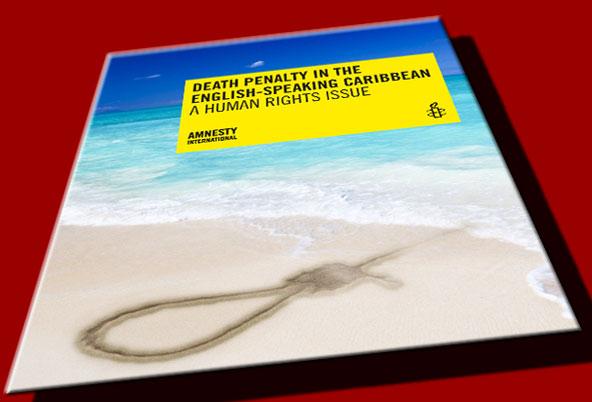
Article(s)
Call to end flawed Caribbean death penalty
By Thomas Hubert, on 10 December 2012
An appeal signed by local organizations and a new report by Amnesty International denounce multiple human rights violations in the use of capital punishment in the region and ask governments to “remove the death penalty once and for all from the law books”.
2012
Antigua and Barbuda
Bahamas
Barbados
Belize
Dominica
Fair Trial
Grenada
Guyana
Intellectual Disability
Jamaica
Mental Illness
Saint Kitts and Nevis
Saint Lucia
Saint Vincent and the Grenadines
Trinidad and Tobago
Article(s)
What now for Mumia?
on 28 April 2008
On 27 March, a US federal appeals court overturned Mumia Abu-Jamal’s death sentence, but not his conviction for murder. His lead counsel Robert R. Bryan gives his reaction to the ruling and the next steps in America’s most high-profile capital case.
2008
Fair Trial
United States
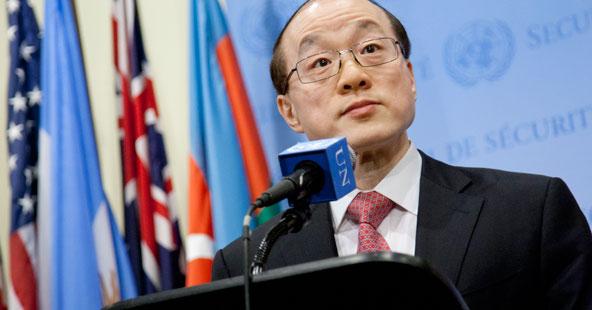
Article(s)
How far is China ready to reduce its use of the death penalty?
By Aurélie Plaçais, on 25 November 2013
The number one executioner in the world recently made national and international commitments to continuing to reform its death penalty, but how far is China really ready to go?
2013
China
Clemency
Drug Offenses
Terrorism

Article(s)
Women sentenced to death: An invisible reality
By Advocates for Human Rights, International Federation of ACAT (Action by Christians for the Abolition of Torture), International Harm Reduction Association (IHRA), non-governmental organizations in special consultative status, on 4 August 2021
The World Coalition Against the Death Penalty and supporting member organizations welcome the annual full-day meeting to discuss the human rights of women under resolution 6/30.
2021
Drug Offenses
Fair Trial
Women
Page(s)
Become a member
on 22 June 2020
Only legal entities can join the World Coalition Against the Death Penalty In accordance with article 5.1. of its Bylaws, the World Coalition welcomes organizations that share the aim of the universal abolition of the death penalty. What the World Coalition offers its members What the World Coalition does not offer its members How members […]
2020

Article(s)
Amnesty 2010 stats: retentionist countries increasingly isolated
on 28 March 2011
Countries which continue to use the death penalty are being left increasingly isolated following a decade of progress towards abolition, Amnesty International has said in its new report Death Sentences and Executions in 2010.
2011
China
Drug Offenses
Egypt
Fair Trial
Indonesia
Iran (Islamic Republic of)
Juveniles
Lao People's Democratic Republic
Libya
Malaysia
Moratorium
Pakistan
Sudan
Thailand
United Arab Emirates
United States
Yemen
Document(s)
Sentenced to Death Without Execution
on 15 December 2020
2020
NGO report
Antigua and Barbuda
Barbados
Dominica
Grenada
Saint Kitts and Nevis
Saint Lucia
Saint Vincent and the Grenadines
Trend Towards Abolition
More details Download [ pdf - 1597 Ko ]
This research is a contribution towards understanding why six small, independent island nations in the
Eastern Caribbean – Antigua and Barbuda, Dominica, Grenada, St Kitts and Nevis, St Lucia, and St
Vincent and the Grenadines, all members of the OECS – and the neighbouring island of Barbados retain
the death penalty in their criminal statutes, and yet have not executed anyone sentenced to death for a
very long time. With the exception of St Kitts and Nevis, where an execution took place in 2008, no-one
has been judicially executed in any of the other countries for more than 20 years – and in Dominica,
Grenada, St Lucia and Barbados for more than 30 years. Furthermore, death sentences have been imposed
within the past 10 years only in St Lucia and Barbados, and in four of these seven nations no-one is under
sentence of death on ‘death row’ at the time of writing.
The questions posed by this publication are: why do these countries hang on to capital punishment
and what are the barriers and hindrances to the complete abolition of capital punishment by these
nations
- Document type NGO report
- Countries list Antigua and Barbuda / Barbados / Dominica / Grenada / Saint Kitts and Nevis / Saint Lucia / Saint Vincent and the Grenadines
- Themes list Trend Towards Abolition
Article(s)
10.10.10 World Day Against the Death Penalty – USA special
on 6 August 2010
On 10 October 2010, the World Day Against the Death Penalty will focus on the USA. There are two months left to prepare and promote the events planned around the world on the big day.
2010
Cruel, Inhuman and Degrading Treatment and Punishment
United States
Document(s)
World Coalition Activity Report 2022
By World Coalition Against the Death Penalty, on 22 August 2023
2023
World Coalition
Trend Towards Abolition
frMore details Download [ pdf - 323 Ko ]
- Document type World Coalition
- Themes list Trend Towards Abolition
- Available languages Rapport d'Activité de la Coalition Mondiale 2022
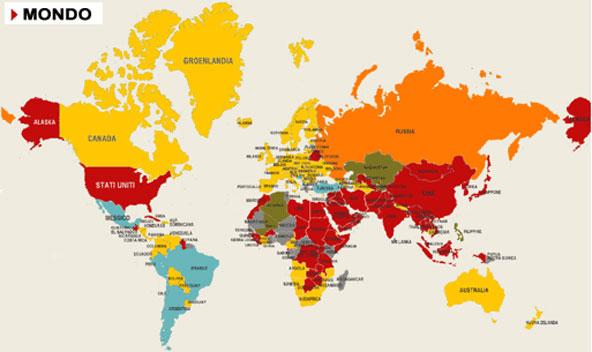
Article(s)
Hands Off Cain: number of executions and retentionist countries down in past year
on 29 July 2013
World Coalition member Hands Off Cain (HOC) presented its 2013 Report, ‘The Death Penalty Worldwide’ at its headquarters in Rome on 26 July. It recorded a sharp drop in executions.
2013
Article(s)
End the death penalty for drug-related offences
on 26 June 2009
June 26 is a world day of action against drugs. Several international NGOs have joined their voices to condemn the use of capital punishment against drug users and traffickers.
2009
China
Drug Offenses
Indonesia
Viet Nam
Document(s)
Law, society, and capital punishment in Asia
By David T. Johnson / Franklin E. Zimring / Punishment and Society, on 1 January 2008
2008
Article
Japan
More details See the document
Students of capital punishment need to study Asia, the site of at least 85 percent and as many as 95 percent of the world’s executions. This article explores the varieties of Asian capital punishment in two complementary ways. Cross-sectionally, the impression of uniformity that comes from classifying 95 percent of the population of Asia as living in executing states breaks down when closer attention is paid to the character of capital punishment policy within retentionist nations. Temporally, the general trajectory of capital punishment in the Asian region seems downward (though generalizations about patterns in this part of the world are undermined by significant data problems). Asia is also a useful territory for testing the generality of theories of capital punishment based on European experience. Looking forward, Japan and South Korea, two developed nations in Asia that still retain the death penalty, may indicate what other Asian nations are likely to do as they develop. Ultimately, Asia either will become a major staging area for world-wide abolition or the campaign against capital punishment will fail to achieve global status.
- Document type Article
- Countries list Japan
Article(s)
The death penalty at the heart of ACHPR debates
on 18 May 2012
The 51st Ordinary Session of the African Commission on Human and Peoples’ Rights (ACHPR) was held in Banjul from April 18 to May 2, 2012. During the session, the Commission presented its “Study on the question of the death penalty in Africa” prepared by the Working Group on the death penalty of the ACHPR.
2012
Angola
Burundi
Gabon
Moratorium
Rwanda
Somalia
South Sudan
Sudan
Togo
Document(s)
Lethal Injustice in Asia: End unfair trials, stop executions
By Amnesty International / Anti-Death Penalty Asia Network, on 1 January 2011
2011
NGO report
enenenenenenenenzh-hantMore details See the document
More people are executed in the Asia-Pacific region than in the rest of the world combined. Add to this the probability that they were executed following an unfair trial, and the gross injustice of this punishment becomes all too clear.
- Document type NGO report
- Themes list Fair Trial,
- Available languages Korean : 아시아에서의 치명적 불의 불공정 재판을 멈춰라, 사형집행을 중단하라.Thai : การประหารชีวิตที่อยุติธรรม ในภูมิภาคเอเชีย ยุติการพิจารณาคดีที่ไม่เป็นธรรม ยกเลิกการประหารชีวิตUrdu : یفاصناان کلہم ںیم ایشیا ںیرک متخ توم ےازس ،دنب تامدقم ہنافصنمریغTagalog : NAKAMAMATAY NA KAWALAN NG KATARUNGAN SA ASYA Itigil ang Di Makatarungang paglilitis, Itigil ang PagbitayMongolian : АЗИ ТИВ ДЭХ ЭНЭРЭЛГҮЙ ШУДАРГА БУС ЯВДАЛ Шударга бусaap шүүх явдлыг зогсоож, цаазын ялыг халъяJapanese : 不当に奪われる生命 ~アジアにおける不公正な裁判を止め、 死刑執行の停止を~Hindi : एशिया में घातक अन्याय: समाप्ति अनुचित परीक्षण, सज़ाएँ बंद करोIndonesian : KETIDAKADILAN YANG MEMATIKAN DI ASIA Akhiri peradilan yang tidak adil, hentikan eksekusi亚洲的致命不公: 终止不公审判,停止处决
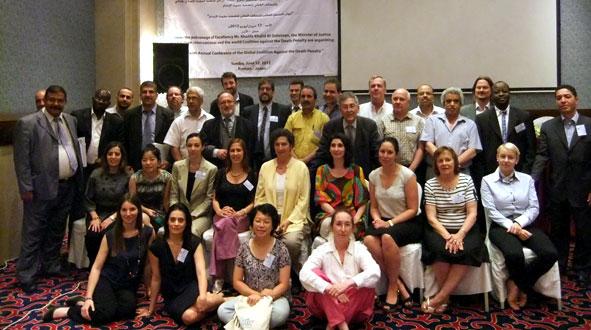
Article(s)
10 years, 132 members, 45 countries
By Florence Bellivier, on 30 June 2012
Penal Reform International welcomed the World Coalition Against the Death Penalty to celebrate its tenth anniversary in Jordan with support from Justice Minister Khalifa Al Sulaiman.
2012
Drug Offenses
Iran (Islamic Republic of)
Iraq
Jordan
Moratorium
Singapore
Taiwan
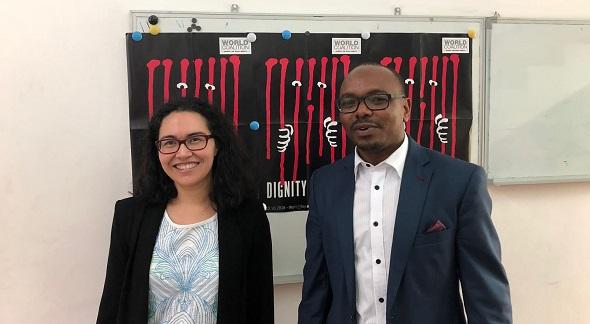
Article(s)
Hope resonates globally on World Day against the Death Penalty
By Nicolas Chua, on 25 October 2018
On 10 October 2018, abolitionist forces around the world celebrated the 16th World Day against the Death Penalty in a flurry of diverse activities and events meant to raise awareness on living conditions on death row. Activists in every continent mobilized civil society, challenged governments and reached out to the general public in a collective effort to promote and advance the common goal of universal, worldwide abolition of the death penalty.
2018
Death Row Conditions
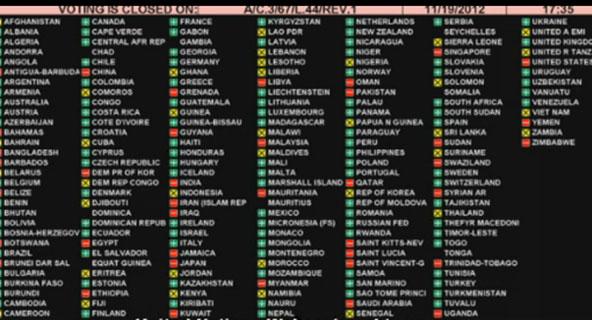
Article(s)
UN General Assembly Committee adopts draft moratorium resolution
By Maria Donatelli, on 20 November 2012
A majority of the world’s nations have approved a text calling for a global moratorium on executions, with stronger support than in a previous vote two years ago.
2012
Afghanistan
Bangladesh
Botswana
Central African Republic
Croatia
Cuba
Egypt
India
Indonesia
Japan
Malaysia
Maldives
Mauritania
Moratorium
Morocco
Niger
Oman
Singapore
South Sudan
Sri Lanka
Sudan
Suriname
Tunisia
Viet Nam
Article(s)
China refuses to consider 250,000-strong petition
on 16 June 2008
A World Coalition delegation found the door closed on June 16 when they attempted to handover to the Chinese Liaison Office in Hong Kong a petition urging for changes in the death penalty system in China.
2008
China
Fair Trial
Innocence
Moratorium
Document(s)
The Death Penalty for Drug Crimes in Asia
By World Coalition Against the Death Penalty / Fédération Internationale des Ligues des Droits de l'Homme (FIDH), on 1 January 2015
2015
NGO report
More details See the document
The report, published for the 13th World Day against the Death Penalty, analyzes how the death penalty is applied for drug-related crimes in Asia, evaluates the most common arguments used by governments to justify their use of this inhumane and illegal measure, and exposes why these arguments are unjustified. Asia is the continent that executes the most people for drug-related crimes. However, the death penalty has not proven to be effective in reducing drug crimes in Asia.
- Document type NGO report
- Themes list Drug Offences, Country/Regional profiles,
Document(s)
The Illusion of Heightened Standards in Capital Cases
By Anna VanCleave, University of Connecticut - School of Law, on 25 January 2024
2024
Article
Fair Trial
United States
More details See the document
Published on April 3, 2023.
The death penalty has gained its legitimacy from the belief that capital prosecutions are more procedurally rigorous than noncapi-tal prosecutions. This Article reveals how a project of heightened capital standards, set in motion when the Supreme Court ended and then revived the death penalty, was set up to fail.
In establishing what a constitutional death penalty would look like, the Court in 1976 called for heightened standards of reliability in capital cases. In the late 1970s and early 80s, the Supreme Court laid out specific constitutional procedures that must be applied in capital cases, and left the door open for the Eighth Amendment to do even more. In the decades that followed, state and federal courts have fueled a perception of heightened procedural rigor in capital cases by referring repeatedly to the heightened standards applica-ble in capital cases.
- Document type Article
- Countries list United States
- Themes list Fair Trial

